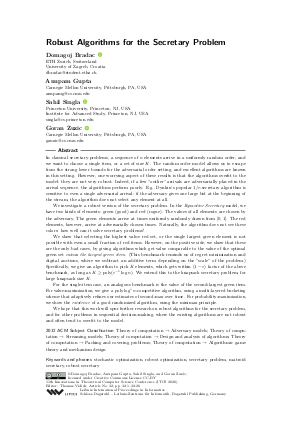LIPIcs.ITCS.2020.32.pdf
- Filesize: 0.63 MB
- 26 pages

 Creative Commons Attribution 3.0 Unported license
Creative Commons Attribution 3.0 Unported license









































Feedback for Dagstuhl Publishing